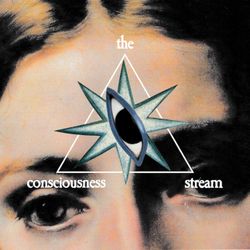Share
![cover art for the healing power of somatic breathwork [preview]](https://open-images.acast.com/shows/60e8deaefb090f0013116d69/1735679446378-b2e8272f-396f-4979-a13e-2172ecffa88e.jpeg?height=750)
Back From The Borderline
the healing power of somatic breathwork [preview]
We don’t tend to think much about our breath in our day-to-day lives. It just… happens, right? Not exactly. Taking the process of breathing for granted would be a mistake, which is exactly what we’re exploring in this episode.Science is only just beginning to validate the extraordinary power of the breath. Breathing, a process which every animal, insect, and plant shares, is perhaps our most vital system. Inhaling gives us life by extracting energy from the interaction of food and oxygen. Exhaling flushes out the waste product of this process, carbon dioxide. Our breathing patterns directly affect our physical, mental, and emotional health and wellbeing. And unlike other bodily functions, such as digesting food, breathing is unique in that it can be practiced intentionally.
Our breath and our emotions are connected. Our breathing and our mind are connected. When strong emotions come up, we know our breath is affected. Breath is the body’s wisdom, reminding us how we’re doing at any moment. Specific breathing patterns can change our internal feelings and alter our emotional state. Today, you’ll hear an exclusive preview of part two of my sit-down chat with my friend Melanie Goldman, where we discuss all things somatic breathwork as she shares about her own profound personal experiences with this healing modality.
Enjoyed this episode? Explore more as a Premium Submarine. Dive deep into hundreds of hours of ad-free exclusive content and full-length episodes on Patreon, including my original BPD recovery series, guided meditations, and much more. Click here to preview the premium collections you’ll unlock access to for as little as a couple of cups of coffee a month. Learn more and join at backfromtheborderline.com.
The information contained in this podcast episode is for educational and entertainment purposes only and is not intended as a substitute for treatment or consultation with a licensed mental health professional.
More episodes
View all episodes

The Voice You’re Using Isn’t Yours
23:28|Most people move through their day assuming the voice in their head belongs to them. The commentary that explains our reactions, the phrases that seem to pop in our minds when we’re about to speak. Even the language we use to justify what we feel, and why we choose to keep going inside this confusing-as-hell human experience in our meat suits. All of that comes from inside us, right?The disconcerting reality is that if you spend enough time listening to yourself think, you realize that the voice you hear feels weirdly…. Standardized. It’s almost as if it was absorbed for you gradually over time, without your permission.This episode looks at exactly how that voice is formed through repetition and pressure through environments that reward quick knee-jerk responses and the illusion of “certainty.” The thesis here is that our language has become something we’ve inherited, no longer something we author ourselves.Together, we’ll explode what it takes to break this collective spell and what it might require for us to learn how to speak from a place within that feels self-directed instead of conditioned.✧ WANT THE FULL EPISODE? ✧Every week, I share these extended episodes on Patreon. If what you’ve heard here has helped or intrigued you, the full version is where the real magic happens. Your support keeps my work independent and ad-light. Support from my Patrons is how I fund my life and make sure what I do stays honest, unfiltered, and as listener-powered as possible. Head to patreon.com/backfromtheborderline to sign up today. Search the episode title and keep listening.(Tip for iPhone users: sign up through Safari or Chrome to skip Apple’s extra fees.)
The Cool Girl Myth and Trend Culture as Self Abandonment
01:10:29|Trend culture these days moves faster than any of us can keep up with. What was framed as essential a few months ago is quickly recoded as dated or embarrassing, replaced by a new “aesthetic.” For many of us, this produces that dreaded feeling: plenty of clothes, but very little (or no) sense of personal style. But I’m here with a spoiler alert for you, my lovely listener. The problem is not your taste level, it’s the system.This episode draws on my firsthand experience working inside fashion PR (albeit for a very brief time.) Yes, I had my very own Andy Sachs moment. And no, it was not nearly as glamorous as hers was. You’ll learn how “cool” is less a mystery and more of a series of controlled decisions about who gets seen, when and why. Participating in this f*cked up Truman show reveals the harsh reality. Which is that the more closely you follow trend culture, the less stable your sense of Self becomes. But what do I know? I’m just a millennial in my thirties. Maybe I’m just chopped and unc.As always, we will approach all of this material sideways instead of straight on, through depth psychology, myth, and understanding of how symbols become powerful (in a truly occult sense) when we repeat them enough. Trend culture is very ritualistic. It’s a kind of shared spell that rewards constant self-editing and treats adulthood like something we should do anything to postpone. Following that logic to its end exposes the paradox at the center of the “Cool Girl” fantasy, which is that the fastest way to lose any sense of yourself is to keep trying to become her, and that real maturity (the unmarketable kind) is what quietly returns your style, and your authority back to where it has always belonged. To you.Follow @moods.codex on Instagram to be the first to sign up for the waitlist. We’ll be posting updates about the launch there.
the cassandra curse: feeling “crazy” when you’re actually right
22:02|For the highly sensitive, intuitive, and intense people among us, our greatest gift is often the source of our deepest interpersonal suffering.We pick up on invisible tells and subconscious subtext that others miss. We can just feel when the energy shifts. But when we try to speak that truth to the person on the other end, we often make the mistake of outsourcing our validation. We get upset that they aren't seeing our version of reality, and inevitably, we get labeled "crazy." The tragic irony here is that the harder we fight to prove we are sane, the more we fulfill the “prophecy.”In this episode, we’ll be stepping as far away as possible from diagnostic labels and looking at this dynamic through the lens of ancient mythology, depth psychology, and alchemy. We’ll dissect what I’m calling “The Cassandra Curse.” The archetype of the prophet who was doomed to see the truth, but whose own reaction turned her own story into a tragedy.We explore:· The Self-Sabotage Loop: How we turn a valid intuition into an explosion that destroys our credibility (and how to interrupt it)· The Control Trap: Why trying to "force a confession" out of someone is actually a form of control· Pearls & Swine: Why we keep handing our highest currency to people who aren't ready to receive it· The Transformation: How to move from the Hysterical Victim archetype to the Sovereign Priestess who trusts her own intuition and doesn't need anyone else to sign off on her reality for herIt's time to stop trying to prove you're right just to make others wrong and start trusting what you see and letting that be enough. To listen to the full episode, sign up for Patreon at patreon.com/backfromtheborderline. To make sure you're one of the first to sign of for the waiting list for MOODS, follow us on IG at moods.codex.
why you can’t relax: the 5 survival spells running your life
01:07:01|These five “survival spells” once kept you safe. Now they’re quietly running your life.Many adults live with a constant undercurrent of tension. Rest feels conditional. Even moments of safety carry a sense of hypervigilance. This episode explores the internal logic behind that state that so many of us are trapped in.Together, we’ll examine five psychological illusions that often shape adulthood beneath our conscious awareness: control, performative identity, scarcity, isolation, and perfectionism. Each one of these strategies are formed for a particular reason. Each also solved a very real problem at an earlier stage of our lives. Over time, these patterns harden into rules and internal scripts that determine how much ease and connection feel permissible for us.Rather than approaching these patterns as pathologies (which is all too common in our modern culture), this conversation treats them as intelligent adaptations with a mythic structure. Survival morphs into a spell while adulthood becomes a role that requires our constant micromanagement.Drawing from depth psychology, nervous system awareness, and symbolic thinking, this episode offers language for experiences that often feel impossible to put into words. It follows how modern life rewards vigilance while eroding the very conditions required for genuine rest, and how recognizing the underlying workings of these inner contracts changes the way they operate within you.The goal is here is not to “fix.” I think we’re all tired of trying to fix ourselves. What we want to do in this episode is to open up to inquiry. Meaning tends to emerge through recognition. The real work begins with seeing what has been quietly organizing your inner world in the background for your entire life without you being aware of it at all.That’s the spell. Let’s break it together.And before you go, don’t forget to follow @moods.codex on Instagram to be the first to hear when the waitlist opens for my new inner work app.
why you’re obsessed with people who can’t love you back
01:08:02|This episode examines limerence not as a personality flaw or a trendy attachment term, but as a learned psychological strategy that begins in childhood. Rather than treating obsession as irrational, we explore how it develops as a way to survive inconsistent, misattuned, or emotionally absent parenting, and how that same strategy later shows up in adult relationships.This phenomenon explains why so many of us become fixated on emotionally unavailable partners and why the end of even a short relationship (or even a situationship) can feel devastating in a way that doesn’t match the actual reality of the situation. It’s why obsession often gets mislabeled as “love” or “passion.” We look at how the mind uses fantasy and idealization to stabilize itself and why emotionally unavailable people reliably trigger these patterns.What This Episode CoversWhat limerence actually is (and what it isn’t)Why obsession often forms around people you barely knowHow childhood coping strategies turn into adult romantic fixationThe role of emotional unavailability and intermittent reinforcementWhy intensity gets confused with intimacy and “fate”How fantasy and projection stabilize the nervous systemThe overlooked spiritual dimension of limerence and devotionWhat it means to finally step out of the pattern without self-blameUNLOCK BONUS EPISODES, VOICE NOTES & THE FULL ARCHIVEJoin the BFTB Patreon community and become a Premium Submarine, where you’ll unlock hundreds of hours of paywalled content I’ve been building since 2021.⟁ Visit backfromtheborderline.com for free resources, updates, and everything else I offer.⟁ Or go straight to patreon.com/backfromtheborderline to join now.Once you’re in, you’ll get a private feed you can add to Spotify, Apple, or your favorite podcast app, so you can listen to every episode I’ve ever released, all in one place.
nick fuentes and the cult of irony
39:54|This preview of a Patreon-exclusive episode breaks down exactly how Nick Fuentes functions as a media figure and why his influence persists despite bans, persistent backlash, and public condemnation. Rather than arguing about whether or not he is dangerous, I analyze how his livestreams work in practice. We dig into the role humor plays in his persona, explore chat dynamics his his livestreams, and how irony creates commitment and shared identity among his loyal followers, the Groypers.The episode traces how young men who feel disconnected from institutions and the future itself get absorbed into this kind of online ecosystem and how responsibility and accountability both stay intentionally slippery when everything is framed as a joke. In the premium portion of the exploration, I also examine exit paths and what actually helps people disengage once they’ve been pulled in by these types of dynamics, as well as what this tells us about the broader culture that keeps producing figures like Fuentes.✧ WANT THE FULL EPISODE? ✧Every week, I share these extended episodes on Patreon. If what you’ve heard here has helped or intrigued you, the full version is where the real magic happens. Your support keeps my work independent and ad-light. Support from my Patrons is how I fund my life and make sure what I do stays honest, unfiltered, and as listener-powered as possible. Head to patreon.com/backfromtheborderline to sign up today. Search the episode title and keep listening.(Tip for iPhone users: sign up through Safari or Chrome to skip Apple’s extra fees.)
when you’re done being the good daughter
01:09:15|This episode examines what happens when the instinct to please, fix, and perform finally breaks down. It’s an archetypal investigation into three roles that often define women’s emotional lives: the Good Child who earns love, the Witch who learns to wield power, and the Daughter-Savior who tries to repair everyone else’s pain. Through personal narrative, cultural analysis, and depth psychology, this story uncovers how these identities form and how they can be released without bitterness. Listeners will recognize the quiet exhaustion of carrying a family’s emotional weight and the shock of realizing that love isn’t something you should have to earn through service. The end result of listening should be a kind of reflective catharsis. The experience of hearing your own pattern described clearly and the relief of imagining life beyond it.UNLOCK BONUS EPISODES, VOICE NOTES & THE FULL ARCHIVEJoin the BFTB Patreon community and become a Premium Submarine, where you’ll unlock hundreds of hours of paywalled content I’ve been building since 2021.⟁ Visit backfromtheborderline.com for free resources, updates, and everything else I offer.⟁ Or go straight to patreon.com/backfromtheborderline to join now.Once you’re in, you’ll get a private feed you can add to Spotify, Apple, or your favorite podcast app, so you can listen to every episode I’ve ever released, all in one place.
how to ACTUALLY stop giving a f**k about what people think of you
23:06|This is what it actually takes to stop caring what people think. For real this time.Every person who grew up managing the reactions of parents, partners, and strangers online knows the courtroom that forms in your head. It’s where you replay every sentence you’ve said, trying to prove that you’re right or somehow good enough. This episode examines where this mental reflex takes root and why it survives long into adulthood, often sabotaging our ability to actually live. Our desperate need to explain ourselves becomes a quiet and destructive addiction.You’ll hear how that instinct begins in childhood environments that equated misunderstanding with danger, how it shapes adult communication and creativity, and what actually happens when we finally stop compulsively defending our reputations and negotiating our innate right to simply exist.✧ WANT THE FULL EPISODE? ✧Every week, I share these extended episodes on Patreon. If what you’ve heard here has helped or intrigued you, the full version is where the real magic happens. Your support keeps my work independent and ad-light. Support from my Patrons is how I fund my life and make sure what I do stays honest, unfiltered, and as listener-powered as possible. Head to patreon.com/backfromtheborderline to sign up today. Search the episode title and keep listening.(Tip for iPhone users: sign up through Safari or Chrome to skip Apple’s extra fees.)
how AI is rewiring the human psyche
01:26:51|AI isn’t abstract anymore. It’s showing up in the deepest parts of our lives People are using it at the exact moments they used to reach for a journal, a friend, or a distraction. That’s the territory we step into in this episode. I invited Dr. Laurence Hillman and Dr. Vanja Bokun Popović to join this conversation because both of them watch how inner life actually works through years of sitting with clients, students, and their own personal experiments with these tools.The conversation moves from very concrete moments (panic rising during an AI exchange and a client swept into a fantasy that felt all too real) into the deeper and murkier psychological forces at play underneath it all. Vanja draws on trauma work and her experience with people whose attention tilts toward intensity. Laurence looks at patterns that show up when someone projects old material onto new technology. Neither of them treat AI as a gadget, but instead track what it stirs up in the psyche.A steady theme is the question of personal readiness. Some people approach these systems with curiosity. Others bring hunger, fear, or a kind of imaginative overflow that can take on a life of its own. We talk through those differences without panic or dismissal. We also spend time on the way current mental-health protocols can misread metaphor, inner descent, or even spiritual language, which creates a strange tension for anyone doing genuine inner work while using these tools.The episode explores one overarching line of inquiry. How do we stay connected to ourselves while using something this powerful? This whole exchange stays close to the body, the emotional realities of everyday life, and the existential questions people are facing as AI becomes part of their inner world.Connect with Vanja on Instagram at: https://www.instagram.com/vanja_bokun_popovic_phd/?hl=enConnect with Laurence via his website at: https://laurencehillman.com/UNLOCK BONUS EPISODES, VOICE NOTES & THE FULL ARCHIVEJoin the BFTB Patreon community and become a Premium Submarine, where you’ll unlock hundreds of hours of paywalled content I’ve been building since 2021.⟁ Visit backfromtheborderline.com for free resources, updates, and everything else I offer. Or go straight to patreon.com/backfromtheborderline to join now.Once you’re in, you’ll get a private feed you can add to Spotify, Apple, or your favorite podcast app, so you can listen to every episode I’ve ever released, all in one place. ⟁